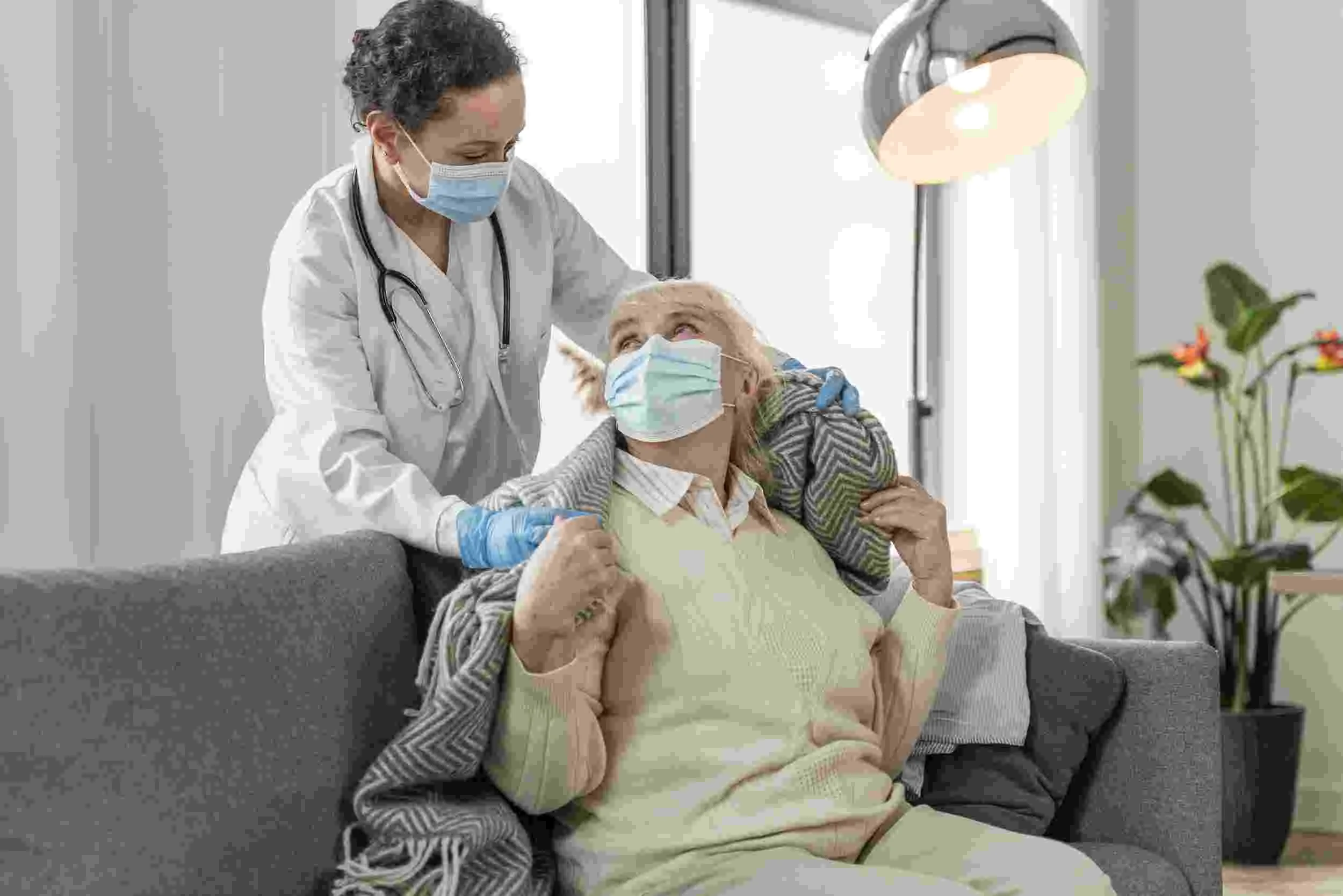
In-Home Nursing Care for Post-Surgery Recovery
After surgery, it is necessary for the patient to undergo special care. Of course, this special care is not only limited to the time of hospitalization. In order to speed up the recovery process, nursing care for patients who have undergone surgery at home must also be followed up carefully. In-home nursing care for post-surgery recovery is highly specialized and requires the presence of skilled and experienced people.
After the surgery, the patient is cared for in a room for a while, which is very important for up to an hour after anesthesia, so the patient must be under the supervision of expert doctors and experienced nurses. After the patient regains full consciousness, he/she is transferred to the ward. Also, after the patient is discharged, some care is needed at home.
After-surgery home care provides everything that is needed to help the patient and improve the health of the person. These cares must be done by trained people. Therefore, if you want in-home nursing care for post-surgery recovery, it is better to seek help from experienced and knowledgeable nurses for this task. We invite you, dear ones, to spend a few minutes with us until the end of this article from the Human Health Mag website.
Necessity of In-Home Nursing Care for Post-Surgery Recovery
Nursing patients after surgery at home has a significant role in reducing the recovery period and speeding up the recovery process of these people. Because patients who have recently undergone surgery experience greater comfort and intimacy in the home environment. Therefore, nursing these people at home causes psychological peace and, as a result, increases the patient’s morale. Other reasons and benefits of performing post-hospital and after-surgery care at home include the following:

- Reducing the risk of infection after surgery
After every surgery, because the wound is still fresh, there is a possibility of infection. Therefore, in the first few days after the operation, the patient is injected with antibiotics to prevent infection. Therefore, by using in-home nursing care for post-surgery recovery services, therapeutic measures such as antibiotic injections can also be performed at home. The side effects of self-medication with antibiotic use among geriatric can lead to antibiotic resistance.
- Preventing blood clots in the patient’s veins
When a patient undergoes surgery for a broken leg, there is a possibility of blood clots forming in the deep veins of the leg. The formation of this clot in the lower limbs is very dangerous. It causes dangerous complications such as pulmonary embolism and heart problems. Therefore, after surgery, the patient will be prescribed medications called blood thinners. It should be noted that the use of these medications will continue after discharge from the hospital and for a few weeks after surgery. Therefore, it is necessary to use nursing services at home to perform leg exercises in bed for the elderly and to take appropriate doses of diluent drugs. How to improve circulation in legs while sleeping? Do you know?
- Wound dressing
Usually, there is no need to change the dressing for a few days after surgery. However, after this period, the dressing should be changed systematically and with complete hygiene precautions. Otherwise, there is a possibility of wound infection due to improper dressing by inexperienced people. For this reason, we recommend that you use experienced nurses to change the patient’s wound dressing and receive the best possible nursing care services for patients who have undergone surgery at home.
- Reducing pain after surgery
Many patients feel severe pain in the surgical area for several days after surgery. Of course, the severity of pain in these people depends on various factors such as gender, age, type of operation, etc. In case of severe and unbearable pain, the patient is given painkillers to reduce the pain to some extent. After the patient is discharged, if necessary, the specialist doctor will prescribe painkillers. Therefore, the nurse uses certain doses of painkillers to reduce the pain of these people. It should be noted that the amounts of painkillers is very important for pain control. Of course, the use of these painkillers should not be excessive because the patient may be poisoned.
- Diet
Another part of in-home nursing care for post-surgery recovery is following a special diet prescribed by the doctor. Because the patient must consume nutritious foods that improve his performance. In other words, the patient needs foods rich in protein and glucose to repair his tissues after surgery. Therefore, the home nurse monitors the patient’s diet and diet for elderly digestion and includes protein and sugary foods in this diet.
Types of In-Home Nursing Care for Post-Surgery Recovery
In general, nursing care for patients after surgery begins immediately after surgery in the recovery room. In some people, due to continuing care, an experienced nurse continues home care at home. Of course, the type of activity of nurses in caring for patients after surgery varies depending on the amount of rest and type of care. But in general, of in-home nursing care for post-surgery recovery can be divided into the following sections:
- Nursing of patients who have a favorable general condition and only need a nurse to control symptoms and daily activities.
- Nursing of patients who need therapeutic measures such as injections and symptom control. In this case, a trained person is needed to be able to properly care for the patient.
- Caring for patients after surgery with acute conditions to provide the necessary care after difficult operations in principle

Treating patients who have undergone surgery at home requires skills in controlling vital signs such as heart rate, blood pressure, breathing, and nervous status. Also, in some cases, the nurse must check drains, catheters, and bandages. In case of problems for the patient after surgery, such as acute infections, persistent fever, and redness or swelling, etc., the nurse must be able to properly control the conditions and provide the necessary care for the patient. In addition, the primary care that the nurse undertakes includes the following:
- The patient’s personal hygiene
- Monitoring nutrition and daily meals, as well as taking medications at their specified times
- Mobility assistance to meet the patient’s small needs
- Items such as shopping, cooking, and cleaning
The Role of the Family in Special Care After Surgery at Home
The presence and support of the family can accelerate the patient’s physical and mental recovery and help prevent complications. Creating a calm and stress-free atmosphere at home and expressing love and attention to the patient reduces stress and increases his/her motivation to recover. This emotional support can help the patient feel less lonely and worried. The family should help the patient to strictly follow the doctor’s recommendations, including taking medications regularly, following a diet, and performing recommended activities.
The family can also play an effective role in changing dressings, keeping the wound clean, and monitoring the patient’s overall health. They should identify unusual symptoms such as fever, severe pain, swelling, or bleeding and notify the doctor immediately if necessary.

Family members can support the patient in-home nursing care for post-surgery recovery and in performing simple movements and short walks, which will improve blood circulation and prevent problems such as blood clots. By managing daily routines such as meal preparation, planning for the patient’s rest, and creating a suitable environment for adequate sleep, the family plays an important role in creating peace and order during the recovery period. They can play an active role in coordinating with the nurse and doctor to follow up on subsequent examinations and inform the patient of the patient’s condition.
Encouraging the patient to be patient and trust the treatment process has a positive effect on his or her mood. Talking about positive and hopeful issues can have a positive effect on the recovery process.
Concluding Remarks
Home nursing care plays a key role in accelerating the patient’s recovery, reducing costs, and improving their quality of life. By creating a calm and intimate environment, the presence of the family, and strict adherence to medical instructions, the patient’s physical and mental recovery can be helped. Although home care has limitations such as lack of access to advanced equipment and constant monitoring, these challenges can be managed by utilizing professional nursing services and appropriate family education.
Ultimately, in-home nursing care for post-surgery recovery is the best option when the patient’s condition is stable and does not require complex hospital services, because this type of care will have a positive effect on improving his health by combining emotional support and special attention to the patient’s needs.
We’re curious to hear your thoughts! What’s your take on this topic? Comment below and join the conversation; your opinion could spark new ideas!

Frequently Asked Questions
What are the differences between in-home and hospital nursing care for post-surgery recovery?
In the hospital, the patient is in a fully equipped and specialized environment, while at home, the environment is calmer and more informal, which can help reduce the patient’s stress, but access to advanced equipment and specialized services is more limited.
Also, in the hospital, there is continuous medical supervision and medical staff monitor the patient’s condition 24 hours a day. However, at home, supervision is not continuous and there may not be enough expertise and equipment to deal with emergency situations. In the hospital, emergency services are available immediately. At home, in the event of an emergency, the patient must be transferred to the hospital, which may take time.
What people need in-home nursing care for post-surgery recovery the most?
Although all patients benefit from nursing services after surgery, some groups have a greater need:
- The elderly
- Patients with diabetes
- People who have had major surgeries such as spine surgery, joint replacement, heart or brain surgery
- Patients without effective companions or working families
- Patients with a history of long-term hospitalization
What does in-home nursing care for post-surgery recovery include?
Dressing changes, vital sign monitoring, injections, medication administration, patient and family education, physical therapy, and psychological care are some of the services in-home nurses provide to support recovery after surgery.
Why is postoperative care at home important?
Because it prevents infection, reduces patient stress, and promotes faster recovery at a lower cost.
